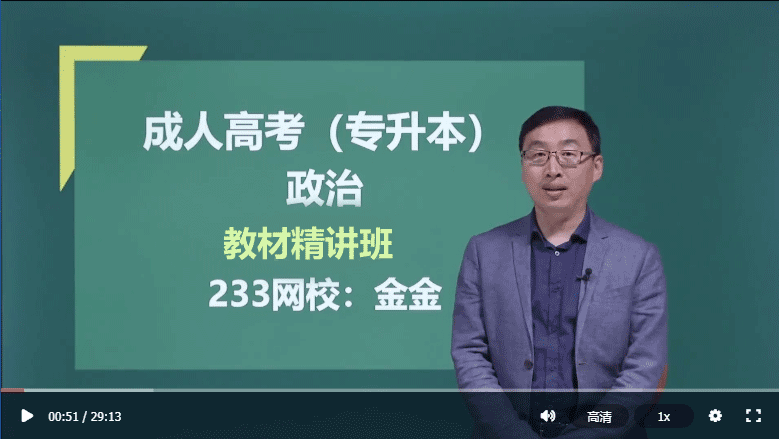цшщЋшЕЗчЙшБшЏшЏцГхНчКГфИчЛфЙ яМхфИяМ
чЌЌфКш хЈшЏфИхЎхМччЈцГ
фИу фИхЎхМчЛцфНфИЛшЏ
1. фИхЎхМхчНЎ
1яМ Derive яМЛAяМН mineral resources from яМЛBяМН sedimentary rock яМЛCяМН is a яМЛDяМН major modern industrial activity.
2яМ in the matriculation for postgraduate in a short time is realy a hard nut.
яМЛAяМН To make high scoresяМЛBяМН To make low goalяМЛCяМН To the high scoresяМЛDяМН Make the low goals
2. фИшПАхНЂхМфИшЌц хЕфИхЄшЇяМфНфИКшшЏчшЇшшБшЏяМхІцфИхЎхМшОщПяМцОхОхЄДщшшНЛяМххЏчБфЛЃшЏтitтфНхНЂхМфИЛшЏяМхНЂхМфИЛшЏтitтфИшНчБтthatтцтthisтчх ЖфЛфЛЃшЏфЛЃцПяМяМшхАфИхЎхМцОхАхщЂ
It is really a hard nut to get high scores in the matriculation for postgraduate in a short time.
3яМ John admitted that it's always difficult .
яМЛAяМН for him being on timeяМЛBяМН being on time for him
яМЛCяМН for him to be on timeяМЛDяМН on time for him
4яМ It is difficult for me яМЛAяМН to be concentrating яМЛBяМН while someone яМЛCяМН is using яМЛDяМН a vacuum cleaner.
3. фИхЎхМхчНЎчц хЕфИфЛ щфКхЈшЏцЏчГЛхЈшЏяМфЙщчЈфКх ЖфЛхЈшЏ
It took us a great deal of efforts to finish that task.
It made him extremely happy to get contact with his family in Taiwan since they separated more than 40 years ago.
4. фИхЎхМчЛццшЁЈчЄКчхЈфНцЏшАхчяМхГфИхЎхМчщЛшОфИЛшЏяМщхИИхЏфЛЅхЈчЙхЎчфИфИцфИшНчхКяМфЙхЏфЛЅщшПхИІтfor яМхшЏчшЏтшОЈхК
It is quite important for us to read good books during the period of general reviewяМцЛхЄфЙ яМу
It is not difficult for those who study maths well to pass the exam.
5. хЈцфКхНЂхЎЙшЏяМхІcarelessяМcleverяМconsiderateяМ foolishяМ goodяМ impoliteяМ kindяМ naughtyяМ niceяМ sillyяМ stupidчяМфНшЁЈшЏцЖяМфИхЎхМххЏфЛЅх ofцЅхМхЏМхКх ЖщЛшОфИЛшЏ
It is very kind of you to help me./It is stupid of him to do such a silly thing.
щДцфЙхЏчЈfor яМ there to be шЁЈчЄКяМшфИthereхщЂчфИхЎхМхЊшНцЏto beяМу
It's a great pity for there to be much trouble in the company.
фКу фИхЎхМфНхЎОшЏ
фИхЎхМфНхЎОшЏцфИЄчЇяМфИчЇцЏхчЉхЈшЏхчДцЅшЗхИІtoчфИхЎхМяМхІфИчЇцЏтхЈшЏяМчщЎшЏяМхИІtoчфИхЎхМт
1. хЈшЏяМхИІtoчфИхЎхМчЛц
хЊшНшЗхЈшЏфИхЎхМчхЈшЏяМхИИшЇчцяМaffordяМ agreeяМ aimяМ appearяМ arrangeяМ askяМ believeяМ careяМ claimяМ decideяМ declineяМцчЛяМяМ demandяМ desireяМ determineяМ endeavorяМ expectяМ failяМ hesitateяМ hopeяМ intendяМ learnяМ longяМ manageяМ meanяМцГшІяМяМ offerяМшЁЈчЄКцПцхтІяМяМ pretendяМ promiseяМ refuseяМ seekяМшЏхОяМяМ swearяМ undertakeяМ wishяМцГшІяМчу
5яМ We refuse that there are insufficient funds in the great vaultsяМщЖшЁфПчЎЁхКяМ of this nation.
яМЛAяМН to believe яМЛBяМН to be belivedяМЛCяМН beliving
яМЛDяМН have belived6яМ The green turtle has been known over 2яМ000 miles to return to a nesting site.
яМЛAяМН in the navigating яМЛBяМН the navigation яМЛCяМН to navigate яМЛDяМН navigation
7яМ For the яМЛAяМН first time Venusian scientists managed landing яМЛBяМН a satellite on the planet EarthяМ and it has been sending яМЛCяМН back signals as well as яМЛDяМН photographs ever since.
8яМ The day is past when Chinese universities and colleges to give high school diplomas to all who sit through four years of instructionяМ regardless of whether any visible results can be discerned.
яМЛAяМН affordedяМЛBяМН affordingяМЛCяМН to afford
яМЛDяМН can affordфЛфИфОцфЛЌхЏфЛЅчхКaffordфИшЌфИcanхcan'tцcouldхcouldn'tшПчЈу
2. хЈшЏяМчщЎфЛЃяМхЏяМшЏяМфИхЎхМ
шПчБЛхЈшЏхИИшЇчцяМadviseяМdecideяМ discussяМ find outяМ forgetяМ inquireяМ knowяМ learnяМ regardяМ rememberяМ seeяМ settleяМ teachяМ tellяМ thinkяМ=considerяМяМ understandяМ wonderчушПфКчщЎфЛЃяМхЏяМшЏцwhatяМ whenяМ whereяМ whichяМ howяМ whetherчяМфНфИх цЌwhyяМхІяМ
He does not know how to go there
when to speak before strangers.
whoяМmяМ to visit.
which one to choose.
You can decide whether to go forward or stay here.
when to see a doctor.
I will show you what to do.
where to go.
how to deal with it.
х ЖфИяМ1яМх2яМфИфИхЎхМчщЛшОфИЛшЏфЛцЏхЅхчфИЛшЏяМххЋфИКHeхYouяМш3яМфИфИхЎхМчщЛшОфИЛшЏхфИцЏхЅхчфИЛшЏIяМшцЏхЎОшЏyou.
9яМ The director of this organization must know .
яМЛAяМН to manage moneyяМ sell his product and beable to satisfy stockholders
яМЛBяМН managing moneyяМ sellingяМ and be able to satisfy the stockholders
яМЛCяМН how to manage moneyяМ sell his productяМ and satisfy the stockholders
яМЛDяМН money managementяМ selling and being able to satisfy the stockholders
10яМ To tell you the truthяМ I really don't know how deal with a man like him.
яМЛAяМН can IяМЛBяМН wellяМЛCяМН toяМЛDяМН much
чИх ГцЈш
- 2017хЙДцфККщЋшщЋшЕЗчЙшБшЏшшЏшО хЏМ:фЛшЏчшЏ04-10
- 2017хЙДцфККщЋшщЋшЕЗчЙшБшЏшшЏххЙДчщЂфНцчВОщцБцЛ04-04
- 2017хЙДцфККщЋшщЋшЕЗчЙшБшЏшшЏххЙДчщЂфНцчВОщхфИ04-03
- 2017хЙДцфККщЋшщЋшЕЗчЙшБшЏшшЏххЙДчщЂфНцчВОщхфК04-02
- 2017хЙДцфККщЋшщЋшЕЗчЙшБшЏшшЏххЙДчщЂфНцчВОщхфИ04-01
| ПЮГЬзЈвЕУћГЦ | НВЪІ | дМл/гХЛнМл | УтЗбЬхбщ | БЈУћ |
|---|---|---|---|---|
| гяЮФ(ИпЦ№Еу)ОЋНВАр | ЕЫО§УФ | ЃЄ150 / ЃЄ150 |  |
БЈУћ |
| гЂгя(ИпЦ№Еу)ОЋНВАр | Monica | ЃЄ150 / ЃЄ150 |  |
БЈУћ |
| Ъ§бЇ(ЮФ)ОЋНВАр | ЭѕЗМ | ЃЄ150 / ЃЄ150 |  |
БЈУћ |
| Ъ§бЇ(Рэ)ОЋНВАр | ТогзжЅ | ЃЄ150 / ЃЄ150 |  |
БЈУћ |
| ДѓбЇгяЮФ(зЈЩ§БО)ОЋНВАр | ХЗбєАиСи | ЃЄ150 / ЃЄ150 |  |
БЈУћ |
| гЂгя(зЈЩ§БО)ОЋНВАр | Monica | ЃЄ150 / ЃЄ150 |  |
БЈУћ |
| ИпЕШЪ§бЇ(вЛ)(зЈЩ§БО)ОЋНВАр | ЭѕЬЮ | ЃЄ150 / ЃЄ150 |  |
БЈУћ |
| ИпЕШЪ§бЇ(Жў)(зЈЩ§БО)ОЋНВАр | ТогзжЅ | ЃЄ150 / ЃЄ150 |  |
БЈУћ |
ИЈЕМПЮГЬ
- ИпЦ№Еу-Ъ§бЇ(ЮФЪЗВЦОРр)

- ЭѕЗМРЯЪІ
 УтЗбЪдЬ§
УтЗбЪдЬ§
- ИпЦ№Еу-гЂгя

- MonicaРЯЪІ
 УтЗбЪдЬ§
УтЗбЪдЬ§
- зЈЩ§БО-ДѓбЇгяЮФ

- ХЗбєАиСиРЯЪІ
 УтЗбЪдЬ§
УтЗбЪдЬ§
АрМЖНщЩм
ЬзВЭАќКЌЃКзЈЩ§БОVIPАр/ИпЦ№ЕуVIPАрЃЈКЌОЋНВ+ецЬтНтЮі+ФЃПМЕуЬт)
ЬзВЭгХЪЦЃК1ЁЂЫјЖЈКЫаФПМЕу
2ЁЂПМЧАЗЂЗХ2ЬзЪдЬт
3ЁЂУтЗбжибЇвЛДЮБЃеЯ
ХфЬзЗўЮёЃК1ЁЂУтЗбЬтПт
2ЁЂПЮГЬНВвх+ПЮМўЯТди+вЦЖЏПЮЬУ







 УтЗбЪдЬ§
УтЗбЪдЬ§ 




